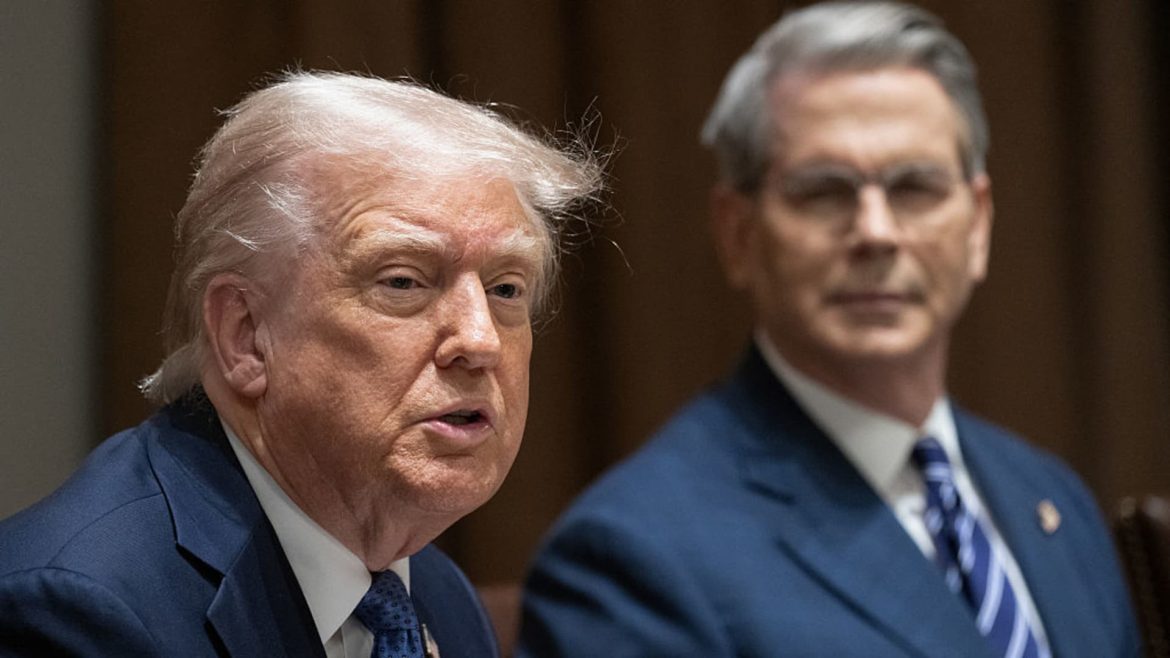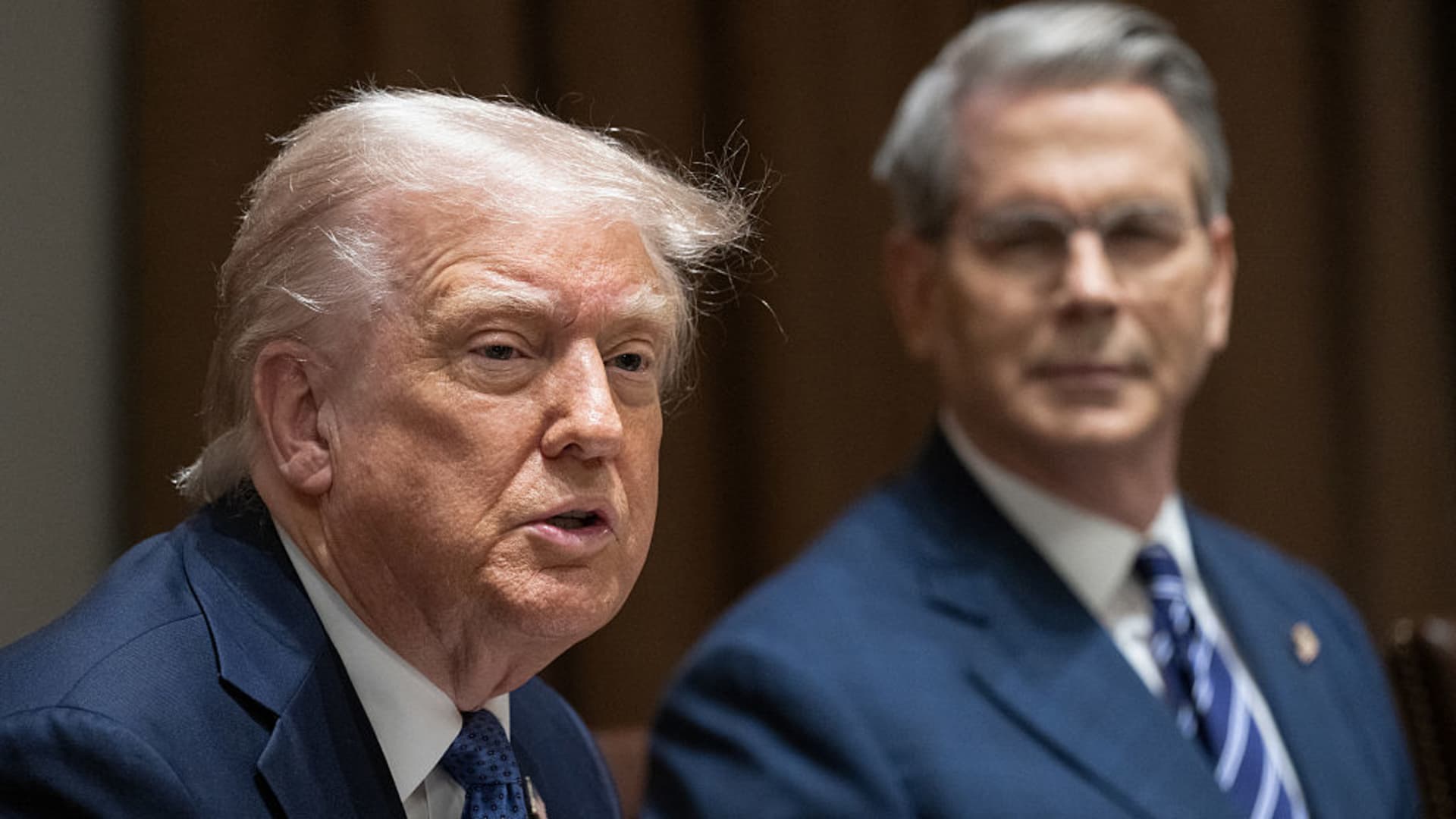The Complex Dynamics of U.S.-China Trade Talks
Introduction
The trade relationship between the United States and China has been a hotbed of tension and negotiation, with both sides employing various strategies to gain the upper hand. Recent developments, including President Donald Trump’s suggestion of an 80% tariff on Chinese goods and the impending trade talks, highlight the intricate dance of diplomacy and economic maneuvering between the world’s two largest economies.
Trump’s Tariff Proposal
President Trump’s proposal of an 80% tariff on Chinese goods, as stated in his Truth Social post, marks a significant escalation in the ongoing trade war. This move comes ahead of crucial trade talks between U.S. and Chinese officials, scheduled to take place in Switzerland. The proposed tariff, a reduction from the current 145%, is seen as a strategic maneuver to deescalate the conflict while maintaining a strong negotiating position. Trump’s reference to Treasury Secretary Scott Bessent indicates a coordinated effort within the U.S. administration to address the trade imbalance and intellectual property concerns.
China’s Response
China’s response to Trump’s tariff proposal has been one of denial and caution. Beijing has consistently denied that any formal tariff talks are underway, despite Trump’s claims. This denial is part of a broader strategy to avoid appearing weak in negotiations. China’s insistence on preconditions, such as the complete cancellation of unilateral tariffs, reflects its firm stance against what it perceives as U.S. aggression. The Chinese government’s evaluation of potential trade talks suggests a willingness to engage but under its terms, highlighting the complexities of the negotiations.
Preparations for Trade Talks
Despite the denials, both sides are actively preparing for the talks. Chinese exporters have resumed buying container space for goods headed to the U.S., indicating a level of optimism or at least a pragmatic approach to the situation. The U.S. administration, led by Treasury Secretary Scott Bessent, is poised to launch negotiations, signaling a readiness to address the trade war head-on. The talks in Switzerland are seen as a critical juncture, with the potential to either escalate or deescalate the trade tensions.
Economic Implications
The economic implications of the proposed tariffs are profound. An 80% tariff would significantly impact Chinese exports to the U.S., potentially shrinking them by a substantial margin. This would have ripple effects on global supply chains, affecting industries ranging from technology to manufacturing. The U.S. economy would also feel the impact, with potential revenue gains from tariffs but also risks of retaliatory measures from China.
Political and Diplomatic Maneuvering
The trade talks are not just about economics; they are also a test of political will and diplomatic strategy. Trump’s assertion that China is “very much” interested in securing a trade deal contrasts sharply with China’s public stance. This discrepancy highlights the underlying tensions and the need for both sides to navigate complex political landscapes. The U.S. administration’s insistence on keeping some tariffs in place, despite requests from Beijing to lower them, underscores the strategic importance of maintaining leverage in negotiations.
Market Reactions
Market reactions to the proposed tariffs and the impending talks have been mixed. While some sectors may benefit from the tariffs, others face significant risks. The uncertainty surrounding the outcome of the talks has led to volatility in global markets, with investors closely monitoring developments. The potential for a trade deal or further escalation will likely influence market sentiment in the coming weeks.
Conclusion: The Road Ahead
The road ahead for U.S.-China trade relations is fraught with challenges and opportunities. The proposed 80% tariff by Trump and China’s cautious approach to negotiations set the stage for a high-stakes diplomatic and economic battle. The outcome of the talks in Switzerland will be pivotal, determining whether the two nations can find common ground or if the trade war will continue to escalate. Regardless of the outcome, the world will be watching closely, as the decisions made in these negotiations will have far-reaching implications for global trade and economic stability.


